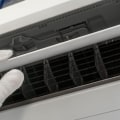Improving Home Air Conditioning Maintenance With Furnace HVAC Air Filters 17x20x1
The 17x20x1 furnace HVAC air filters are highly instrumental in improving air conditioning maintenance. These filters catch dust, pollen, and other particles to improve air quality while reducing the allergens in homes. Regular changing ensures the right airflow and enables the system to work efficiently and expand its lifespan. This is a relatively standard size and gives a great compromise between filtration efficiency and airflow requirements, thus making maintenance easier. Clean filters reduce consumption and also maintenance costs while maintaining a comfortable indoor climate. Knowing more about filter types and ways to perform maintenance enhances HVAC performance even further.
Key Takeaways
17x20x1-sized furnace HVAC air filters clean the air, including dust and allergens, thus providing healthy breathing indoors.
Changing these types of filters regularly avoids hindrances in airflow, raising HVAC efficiency and reducing energy consumption.
Maintenance with a 17x20x1 filter schedule minimizes the possibility of damage to the equipment, which again translates into fewer costly repairs, extending the life spans of the system.
When the right selection of MERV rating for a 17x20x1 filter is made, the filtration is optimized without sacrificing airflow.
This creates an essential blend that is needed for the proper maintenance of air conditioning. The standard 17x20x1 makes it easier to remember to check and change filters for smoother HVAC operation.
Need for Air Filter
Air filters are an important part of keeping your home air fresh and your HVAC effective. The 17x20x1 air filter can capture dust, pollen, and other air particles that flow freely in living spaces. This captures the allergens and makes for cleaner breathing.
Regular changes to air filters are equally important. A clogged filter can restrict airflow, which will make HVAC systems work harder. This will add to energy costs and possible system failures. Keeping air filters clean enhances air quality and prolongs HVAC life.
Secondly, air filters protect equipment from damage. By not allowing dust and debris to build up inside the system, filters ensure that it works smoothly. This maintenance reduces the chances of costly repairs.
Benefits of 17x20x1 Size
Furnace HVAC air filters 17x20x1 have several advantages for any home HVAC system. First, it is a standard size that fits most air conditioning units, so finding a replacement is easy. This size of filter is widely available; this means quality options from many retailers are available.
Other benefits include a balance in filtration efficiency and airflow. An effective 17x20x1 filter captures dust, pollen, and other allergens to improve indoor air quality while allowing sufficient airflow. Such efficiency supports smooth system operation and reduces strain on the unit to add to its longevity.
This filter size also allows for easier maintenance schedules, as the one- to three-month replacements are simple to remember and thus can be checked and changed on schedule, which is important to keep HVAC systems running at their peak performance.
How Filters Improve Efficiency
Filters largely enhance the performance of HVAC systems. Filters promote better airflow in homes by catching dust, dirt, and other particles. The systems have to work less hard to circulate air, hence allowing them to be more efficient. This means lower energy bills and a longer useful life for the units.
Here are a few ways filters improve performance:
Lower energy consumption: Clean filters ensure proper airflow, making it easier on HVAC systems.
Improved air quality: Filters help capture allergens and other pollutants, providing cleaner air for the family.
Lower maintenance costs: Truly efficient filters reduce wear and tear on systems, which can prevent costly repairs.
Consistent temperature control: Proper airflow ensures even heating and cooling, keeping comfort consistent throughout the year.
Extended equipment life: Filters reduce strain on HVAC systems, extending how long a unit will continue to work.
Maintenance Tips for Longevity
Regular maintenance is the only thing standing between HVAC systems, including their filters, and making it through life. First of all, check air filters periodically. They should be changed or cleaned once every three months, or more often when pets are present or a person lives in a really dusty area. Clogged air filters limit airflow, thus putting greater stress on the system and prematurely wearing out parts.
The first is to keep the outdoors devoid of potential blockages. This pertains to continually picking up leaves, dirt, or other objects that would simply obstruct airflow. It tends to conserve operation efficiency and averts potential overheating. Again, it is prudent to invest in annual professional inspections. An appointed technician may manage to notice and eliminate complications that may not easily show or can hamper smooth operation.
The ductwork should be inspected for any leakage or obstruction. This can be efficient if the sealing of gaps encourages the economy in energy use. Last but not least, there are the settings for your thermostat. Making sure that your house's temperature is constant is an important way to avoid stressing unduly on the system.
How to Choose the Right Filter
A proper air filter selection is highly important, affecting both HVAC system performance and indoor air quality. A proper choice of filter will enhance airflow, reduce energy costs, and help in creating a healthier interior environment. First, consider the MERV rating, which is the measurement of how well the filter can catch particles. The higher the MERV rating, the smaller the particles it catches, but it may restrict airflow unless the systems are designed for it.
Consider what type of filter will work for specific needs: fiberglass, pleated, HEPA, and washable are common types. Each of these has positive and negative attributes in terms of efficiency and service. Check the size: filters should fit snugly into their slots to avoid air leaks.
Finally, replacement frequency needs to be factored into the equation, as the lifespan of various types can be drastically different. Check the MERV rating.
Common Questions
How Often Does My 17x20x1 Air Filter Need Replaced?
Replace a 17x20x1 air filter every one to three months, depending on usage and air quality. Regular checks will help maintain efficient airflow while improving HVAC system performance.
Can a Dirty Filter Affect My HVAC System's Lifespan?
A dirty filter can surely reduce the life of an HVAC system. It restricts airflow, which in turn makes the system work harder and may cause overheating or even failure. Regular replacements keep its efficiency up and ensure a long runtime.
What Materials Are 17x20x1 Filters Typically Made From?
Filters are available in 17x20x1 sizes and are made of either fiberglass, pleated synthetic fibers, or even electrostatic components. Each of the materials has different levels of filtration. Which one is right for you will depend on the needs of your HVAC system and the quality of air desired in your home.
Do I Need Professional Help to Change the Filter?
Changing a filter is simple and doesn't require professional help; the only things needed are basic household tools and some guidance. Just follow the manufacturer's instructions for successful and safe work.
Are There Eco-Friendly Filter Options Available?
There are eco-friendly filter options, such as washable ones or ones made from recycled materials; they are great options for consideration. These options offer minimum waste and improved quality of air, thus making it easier to have a healthy atmosphere within the home.
Learn more about HVAC Care from one of our HVAC solutions branches…
Filterbuy HVAC Solutions - Air Conditioning Service
2521 NE 4th Ave, Pompano Beach, FL 33064
(754) 484-4453
https://maps.app.goo.gl/JmWkEXya7uzuLzBh8


